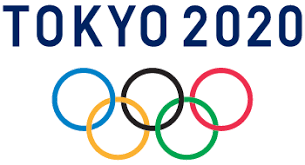By: Sarah Ericksen
The 2020 Summer Olympics are less than a year away and Tokyo has been preparing for the arrival of the Olympic athletes, coaches, and the millions of expected visitors.1 Although hosting the Olympic Games is a highly coveted position, being the host city comes with an enormous amount of responsibilities.
Each host city faces its own set of unique challenges in preparation for the Olympic Games and Tokyo has already identified one the major issues that will have a significant impact on the Games: the heat. Extreme heat is not an abnormal occurrence for Tokyo during the summer months.2 When Tokyo last hosted the Summer Olympics in 1964, the Games were held in October in order to avoid the heat.3 Over the past two years, Tokyo has had extremely hot summers with record high temperatures.4
The heat has already caused serious health issues throughout Japan. There have been 68 reported heat-related deaths and 23,000 cases of heatstroke from the end of July 2019 to the beginning of August 2019.5 Notably, a construction worker was found dead after collapsing from heatstroke while working at an Olympic media center.6
Many athletes that have participated in the test events are aware of the heat that they will face during the Summer 2020 Olympic Games.7 The test events were scheduled during summer months this year in order for the athletes to experience the Tokyo summer weather.8
Several athletes competing in outdoor events have faced medical problems due to the heat. After the Rowing test event, a rower had to receive emergency medical attention after passing out from heatstroke upon completion of his event.9 Two other rowers participating in the event also required medical attention after the race.10 During the Marathon test event, an athlete collapsed on the track and had to be lifted up by two coaches after her event.11 Triathletes have also faced troubles with the heat because the water temperature has been dangerously close to not meeting the mandated temperature for the event.12 Additionally, the running portion of the event was shortened for the Women’s Triathlon test event in order to protect the athletes’ health.13 The Beach Volleyball test event resulted in four athletes needing medical attention despite the ice packs and water provided by the Olympic volunteer staff.14
A host city could potentially face a legal dispute based upon the inadequacy of the Olympic facilities, availability of proper medical care, insufficiently air-conditioned accommodations, or any other breach of duty that is agreed upon in the host city contract. Since the heat in Tokyo has already caused issues with Olympic athletes, there is a heightened chance that athletes can become seriously ill from the heat.
Once the International Olympic Committee (IOC) selects a host city, a contract between the host city, the city’s Olympic Committee, and the IOC is executed.15 The Miscellaneous and Health Services sections of the host city contract address the specific concerns with provision of governing law, termination of contract, requirements for medical services, and regulations for the competition venues and athlete accommodations.16
This contract is approximately 80 pages long and the host city is also contractually bound to follow the Olympic Charter and regulations found in the Technical Manuals produced by IOC.17 All of these rules and regulations are set in place by the IOC to ensure that the host city is well-prepared for a successful Games.
If legal recourse is sought by an athlete or team during the course of the Olympic Games, their suit against the host city or IOC is subjected to CAS jurisdiction.18 Any legal dispute that arises out of the Olympic Games is subjected to arbitration held by the Court of Arbitration for Sport (CAS).19 Each host city has a temporary CAS during the Olympic Games.20 After the Games are over, if parties want to bring a claim that arose out of the Games, they are still able to submit arbitration requests to the CAS.21
One of the main ways that athletes may be able to seek legal recourse is through the governing body of their specific event.22 The international federations (IFS) are responsible for the regulation of their respective sport for the Olympic Games.23 These organizations ensure that each event is conducted according to the rules and standards established to ensure that the event is fair, that the event venue is compliant with all of the accommodations necessary for that specific event.24 If the OCGC and host city do not provide suitable venues or conditions for Olympic events, the IFS may seek legal recourse through CAS on behalf of the body of athletes that were affected.
Even if the heat proves to be unbearable next summer, will it matter to the athletes? Historically, Olympic athletes are some of the most resilient athletes in the world. For example, during the PyeongChang 2018 Winter Olympics, athletes were taping their faces to protect against frost bite.25 At the Athens 2004 Summer Olympics, two athletes wore frozen vests before the marathon event in order to stay cool in the heat.26
Although the weather conditions are less than ideal, the extreme heat likely will not stop Olympic athletes from competing in Tokyo 2020. The question remains, will Tokyo step up to the challenge to ensure that the heat does not take any victims at the Games? The answer remains to be seen next August.
Footnotes
1 3.2 Million Tickets Sold in First Phase for 2020 Tokyo Olympics, Kyodo News Agency, The Japan Times (Jul. 5, 2019), https://www.japantimes.co.jp/sports/2019/07/05/olympics/3-2-million-tickets-sold-first-phase-2020-olympics/#.XXbOL5NKhmB
2 River Davis, Tokyo Planners Are Feeling the Heat as Summer Death Toll Soars, Wall St. J. (Aug. 9, 2019), https://www.wsj.com/articles/tokyo-olympics-planners-are-feeling-the-heat-as-summer-death-toll-soars-11565350192?mod=searchresults&page=1&pos=8
3 Id.
4 Id.
5 Id.
6 Id.
7 Tokyo 2020 Test Events, https://tokyo2020.org/en/games/sport/testevents/ (last updated Jul. 2, 2019).
8 Id.
9 Justin McCurry, Concerns Rise with Tokyo Heat After Rowers Treated at Olympic Test Event, The Guardian (Aug. 12, 2019), https://www.theguardian.com/sport/2019/aug/12/concerns-rise-with-tokyo-heat-after-rowers-treated-at-olympic-test-event
10 Id.
11 Talya Minsberg, The Real Hurdle at Tokyo’s Olympic Test Events: The Heat, N.Y. Times (Aug. 15, 2019), https://www.nytimes.com/2019/08/15/sports/olympics/tokyo-olympics-heat-triathlon.html?searchResultPosition=1
12 Id.
13 David Wharton, 2020 Tokyo Olympics Searching for Answers Amid Heat Wave L.A. Times (Aug. 15, 2019),https://www.latimes.com/sports/olympics/story/2019-08-15/2020-tokyo-olympics-searching-for-answers-amid-heat-wave
14 Davis, supra note 2.
15 The Tokyo Organizing Committee of the Olympic and Paralympic Games, Host City Contract, https://tokyo2020.org/en/games/plan/data/hostcitycontract-EN.pdf (last visited Sept. 12. 2019)
16 Id.
17 Id.
18 Court of Arbitration for Sport, Code: Procedural Rules, https://www.tas-cas.org/en/arbitration/code-procedural-rules.html (last visited Sept. 11, 2019)
19 Georgetown Law Library, Organization & Legal Structure of the Olympic Games, https://guides.ll.georgetown.edu/lawolympics (last modified Oct. 22, 2018, 4:18 PM)
20 Court of Arbitration for Sport, supra note 18.
21 Id.
22 Id.
23 Id.
24 Id.
25 Minsberg, supra note 11.
26 Id.





